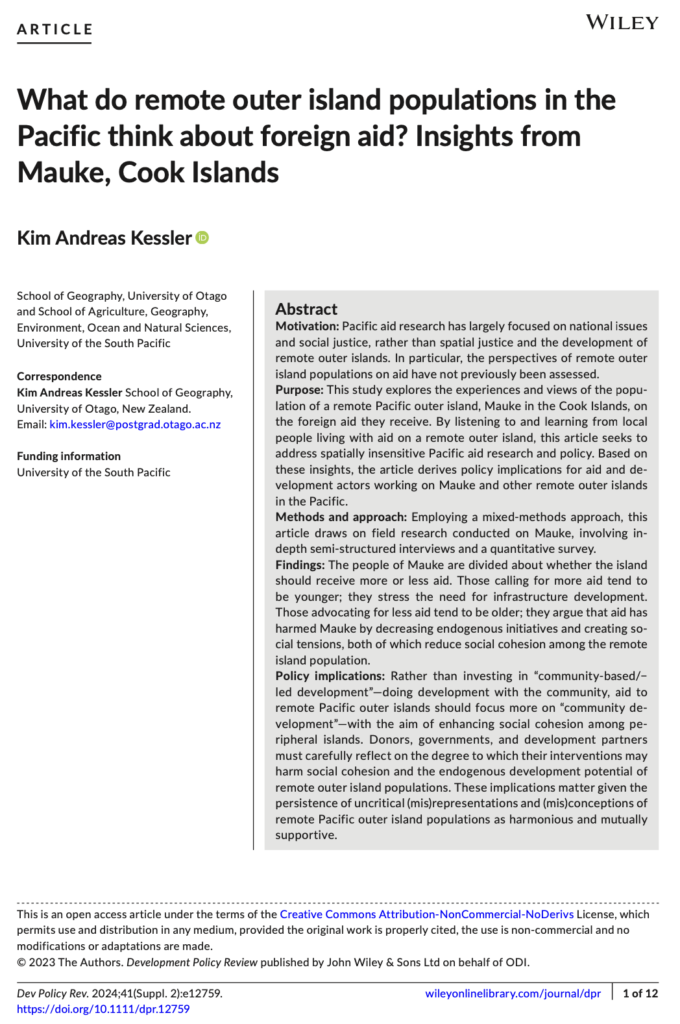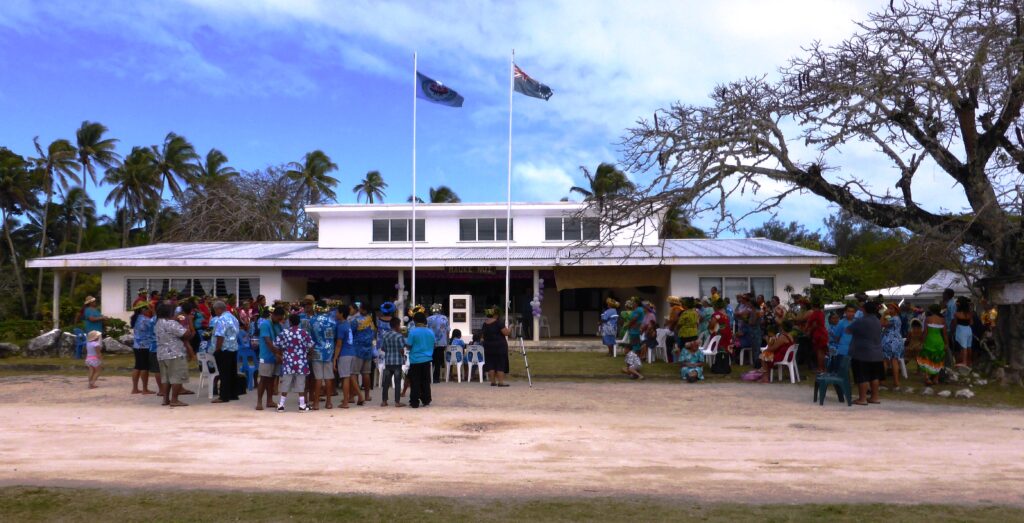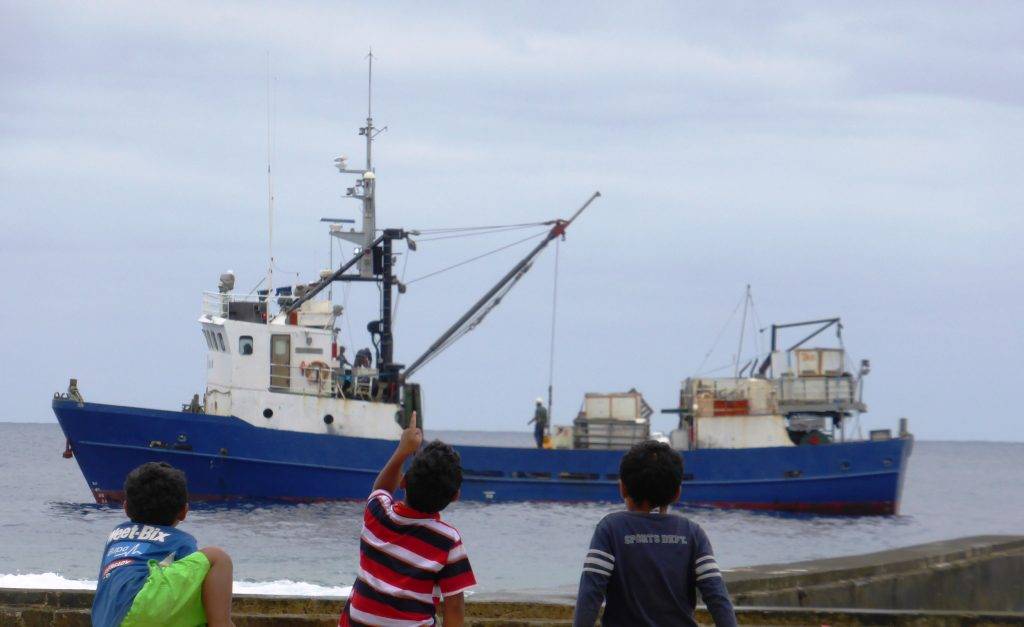My new publication on aid to remote outer islands is available open access:https://onlinelibrary.wiley.com/doi/10.1111/dpr.12759

Researcher in Development Geography
My new publication on aid to remote outer islands is available open access:https://onlinelibrary.wiley.com/doi/10.1111/dpr.12759

After the 2018 general election in the Cook Islands, votes for the Ma’uke electorate will be recounted. A petition has been filed by the One Cook Islands party whose candidate lost to CIP’s Tai Tura by one vote.
In 2018, Ma’uke’s elector population stood at 186. The recount is expected for Wednesday (18 July).

The Cook Islands National Parliament Election results are now official:
Democratic Party (Demos): 11 seats
Cook Islands Party (CIP): 10 seats
Independents: 2 seats
One Cook Islands (OCI): 1 seat
Henry Puna remains Prime Minister as CIP formed coalition with independent candidates and OCI.
There is an ongoing debate in the Cook Islands about the electorates and how they represent population size and regional interests. The Cook Islands are divided into 24 electorates:
With the current system, power is regionally distributed rather than relative to population size. Critiques from political activists and some politicians stress that MPs from outer islands wield too much power compared to the small populations they represent. The Prime Minister, for example, was elected with only 97 votes in a constituency (Manihiki) with a total elector population of 132. On the other hand, the current system more equally distributes power among the 15 Cook Islands and allows for outer island interests to be adequately represented at national level.
A possible reform bridging both arguments would be to introduce a bicameral system. However, the question is whether such a system, common to larger democratic states such as Switzerland, suits the Cook Islands as a comparatively small island state.
The call for such political reform in the Cook Islands is not new. It seems rather unlikely that change is introduced, since a change in electorates is likely to reduce power of the majority of MPs currently in office.
On 14 June 2018, general elections were held in the Cook Islands. These are the results after preliminary counting:
Democratic Party (Demos): 11 seats
Cook Islands Party (CIP): 10 seats
Independents: 2 seats
One Cook Islands (OCI): 1 seat
It is expected that the Electoral Office releases the final result on 28 June 2018.
If results are confirmed and the Demos, OCI and independent candidates form a coalition, the Democratic Party will lead the Cook Islands Government for the first time since 2010.
In 2017, the Organisation for Economic Cooperation and Development (OECD) notified the Cook Islands that they would be classified as a developed country and no longer appear on the DAC list for Official Development Assistance (ODA).
The Cook Islands Goverment negotiated to postpone the final decision in order to provide more accurate data on GNI until end of 2018.
OECD is planning to take the final decision in the first quarter of 2019.
I am currenty working on my thesis with the working title:
Development Thinking in Small Pacific Islands: The Case of Ma’uke, Cook Islands.
I am currently working on the following resarch project:
Rural Development Practices in Pacific Outer Islands: Perspectives from Mauke in the Cook Islands.
